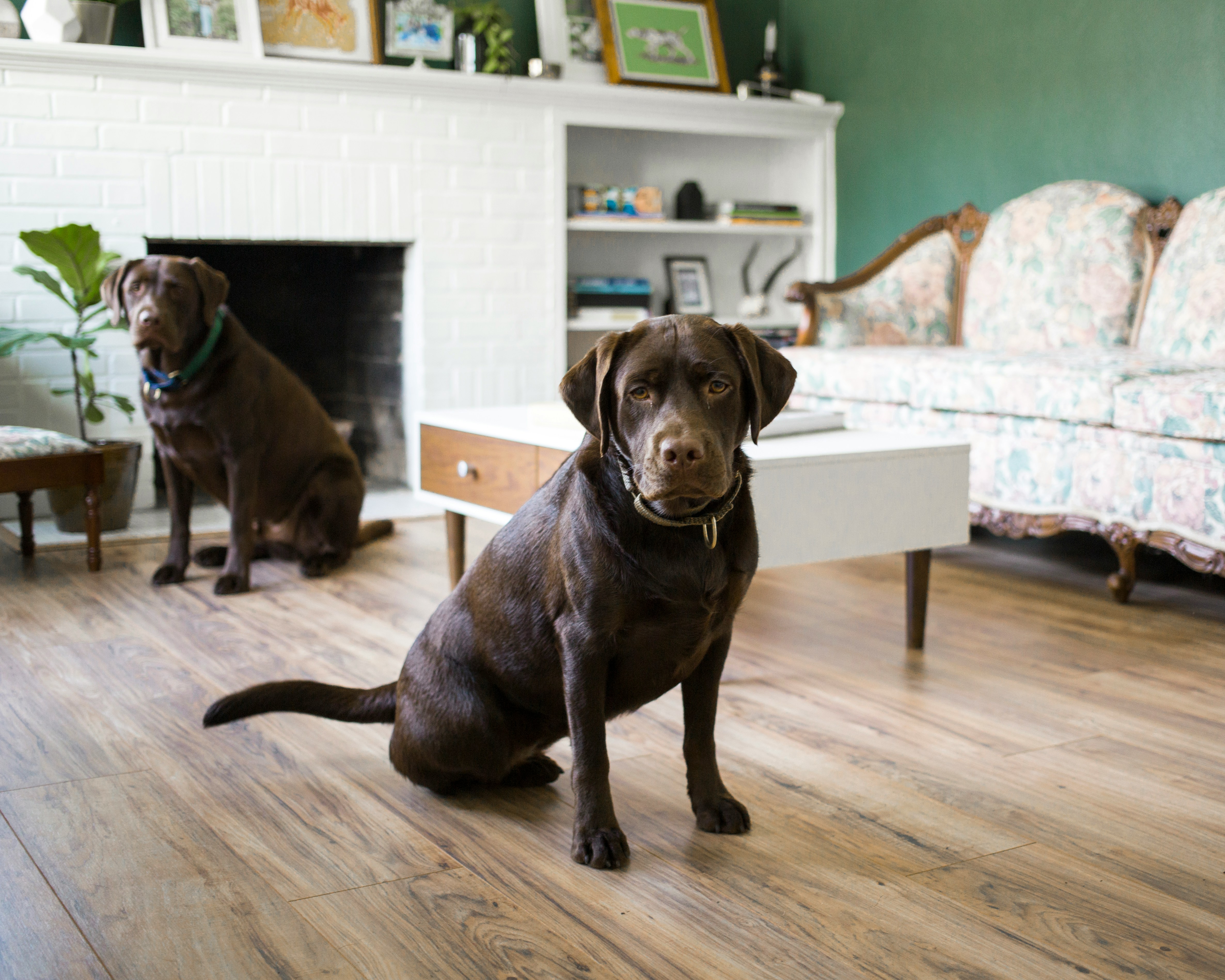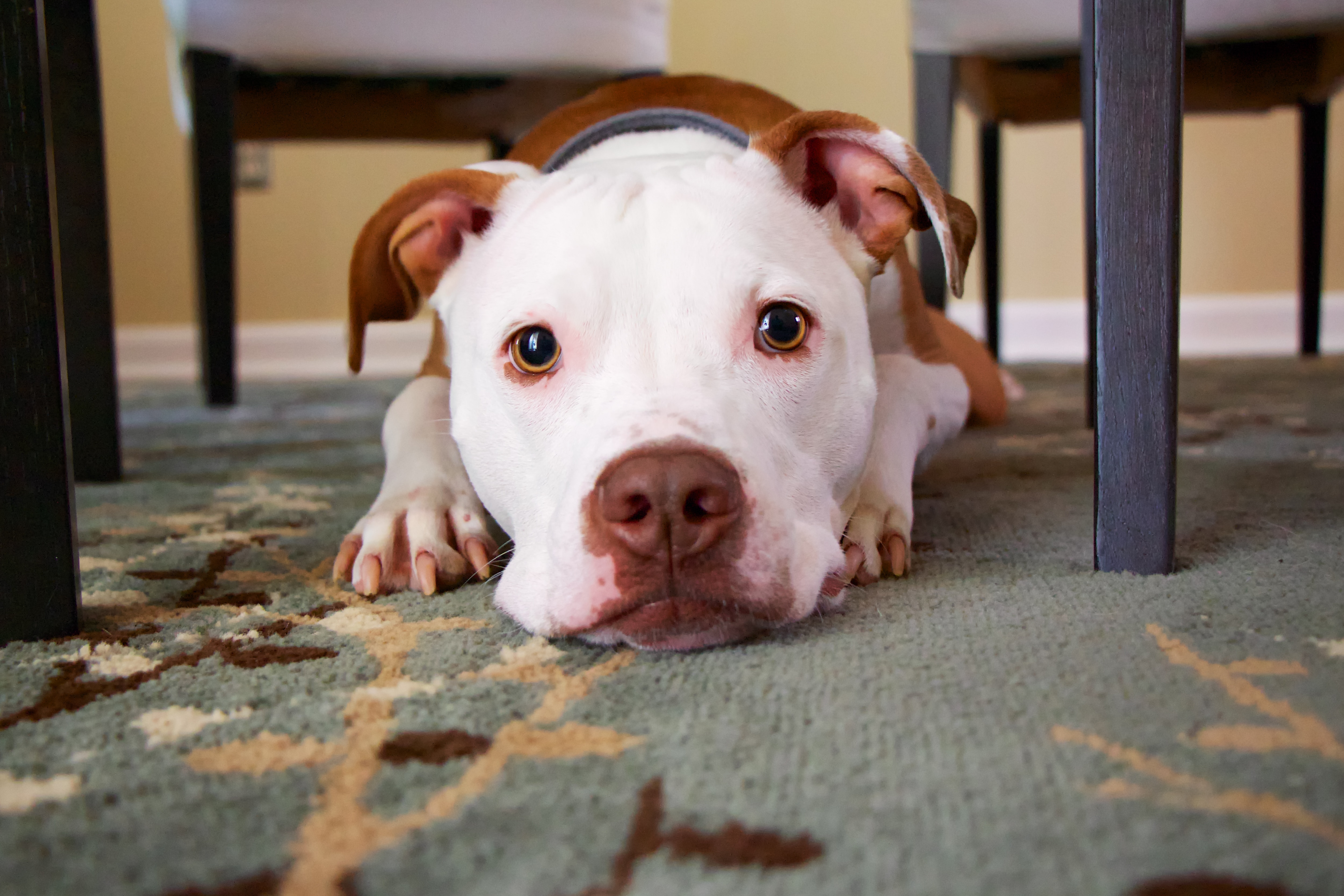Regarding scent marking, we may be discussing urinating or passing stool inside the home. It is a means for a dog to spread their scent and can pose a real challenge to some owners.
When potty training, we teach our dogs to not toilet in the house, but sometimes the behavior may re-occur later in life when a dog is marking.
The act of marking can have a range of causes, and we need to identify why it is happening to address the issue and resolve it.
- Sudden indoor marking can indicate medical/behavioral issues in dogs.
- Marking is a few drips; more urine could mean incontinence or illness.
- A vet check is crucial for dogs suddenly marking to rule out health issues.
- Neutering may help curtail marking linked to sex hormones in dogs.
- Consistency, positive reinforcement, and mental stimulation may stop marking.
Read on to learn why your dog might have started marking and what you need to do to nip things in the bud.
Disclaimer: Please refer to the information in this article as a guide only. If you are worried about your pet’s health or behavior, it’s best to contact your veterinarian.
The information provided herein is for informational purposes only. Please refer to our disclaimer for more details..
- Why has my dog started to mark in the house?
- What is the difference between marking and peeing in a dog?
- How to stop your dog from marking in the house?
- Does it always help to spay or neuter your dog?
- What are the more common causes of house soiling (stool)?
- What are the best ways to stop the marking?
- FAQ
Why has my dog started to mark in the house?
Image credits: Wade Austin Ellis.
If your dog does not usually mark indoors, you need to ask why it has suddenly started to happen. There may be a medical issue or a behavioural problem. A healthy, happy adult dog will not start marking inside for no good reason so we need to determine what could be causing the behaviour.
Some of the more common considerations would include:
- A urinary tract infection, bladder stones or bladder mass
- Diarrhoea, colitis and/or IBD
- A male sensing another dog nearby. This may be an un-spayed female or un-castrated male. This is called territory marking.
- Separation anxiety. In this case, your dog will mark when you leave the house.
- A reaction to change such as a new baby or reduced walks outside
What is the difference between marking and peeing in a dog?
When a dog is urinating in the house, we know it is marking behaviour if it is just a few drips and drops and your pet is marking specific areas. So, when we are dealing with a small amount of urine, this is a good clue that your dog has begun to mark.
If a dog is incontinent or has a medical condition causing them to pass more urine (like diabetes or kidney failure), they will pass large puddles of urine and may not be aware they are doing it. They might wake up wet and leave wet patches on the sofa or their bed. These dogs generally have other symptoms such as excess thirst and weight loss.
How to stop your dog from marking in the house?
Image credits: Mike Burke.
As mentioned, the most important thing is for dog owners to determine why the behaviour has started. If, for example, your dog has a UTI, no amount of changes around the home or room sprays are going to resolve the issue.
When unsure if your dog is marking their territory or more may be going on, a vet visit is important. this may include a health check, urine analysis +/- imaging such as a bladder scan. Your vet can then issue treatment (such as antibiotics or anti inflammatories) as needed.
Behavioural issues are trickier to resolve, and it may mean hiring a professional behaviourist and/or using prescription anxiolytic medicine.
For uncastrated males, neutering should be considered and may help.
Does it always help to spay or neuter your dog?
It is important to understand that neutering won’t stop marking unless it is linked to sex hormones. Both male and female dogs can mark territorially when not neutered, and in these cases, neutering them can help.
For some dogs, if they have been marking for a long time, even if it is caused by their sex hormones, we may need to re-train them to stop marking, even after their neutering surgery.
What are the more common causes of house soiling (stool)?
If your dog is passing stool in the home, check to see if it is loose, bloody or contains mucus. If so, it is likely that your dog has an inflamed gut or another medical problem, leading to an urgency to pass stool and a reduced ability to hold it in.
A vet visit is advised, which may include a stool analysis. This is so your vet can treat the cause of the runny stool.
If the stool appears normal, it may be that the behaviour is caused by something else, such as dementia, faecal incontinence or anxiety.
What are the best ways to stop the marking?
So, as well as addressing any underlying medical issues, things that can help include:
- Using an enzymatic cleaner to quickly clean up any messes and remove the odour.
- Catching your dog in the act and bringing them outside before they go. If you watch their body language closely, you may be able to pre-empt any accidents and avoid them completely.
- Bringing your dog out regularly to toilet.
- Reinforcing house training by offering treats and praise when your dog does go outside.
- Not punishing your dog when they go indoors, as this can increase any anxiety.
- Reducing anxiety by offering enough mental and physical stimulation.
- Offering calming supplements and using calming plug ins or collars as appropriate.
- Not leaving your dog alone for too long. Most adult dogs can’t be expected to spend more than 4 consecutive hours along, as this is simply too long.
- Seeking help from a behaviourist to address problems such as noise phobia or separation anxiety.
FAQ
Why is my new dog marking when they are meant to be toilet trained?
If your dog has been toilet trained and suddenly starts to pass poo pr pee inside, this is a sign of an underlying problem. It could be a medical issue (like food poisoning or a UTI) or a behavioural issue (such as separation anxiety or a noise phobia).
If you have only just taken on a new dog, it may be that the upheaval and change in routine is something they are finding hard to cope with. Over time, implementing a predictable schedule should help a lot here.
How to stop a dog marking specific areas in the home?
Many owners notice their dog keeps going in the same spot each time. This is likely as they see the ‘new spot’ as their toilet, due to the lingering smell of ammonia. To stop this, we can block access to the area and clean it well using an enzymatic cleaner.
Wet and soaked carpets and rugs may need to be taken up.
If urine has soaked down into floorboards, they may have to be removed.
Do male dogs mark more than female dogs?
Anecdotally, yes, males will mark more. This is because they instinctively have a very strong urge to mark territory due to their testosterone. Females may experience a similar urge when in season.
Most males are content marking when outdoors on their walks.
Should I crate my dog if they start to toilet inside?
Crating can help to keep your home clean, especially if you find you come home to messes all over the place after being away from home.
However, if your dog has anxiety, suddenly crating them could make things worse. If you plan on crating, you need to gradually crate train your pooch, to ensure they accept it happily and view the crate as a safe space to rest or sleep.

 Dark Mode
Dark Mode 

 No fees, cancel anytime
No fees, cancel anytime 




















































12
0